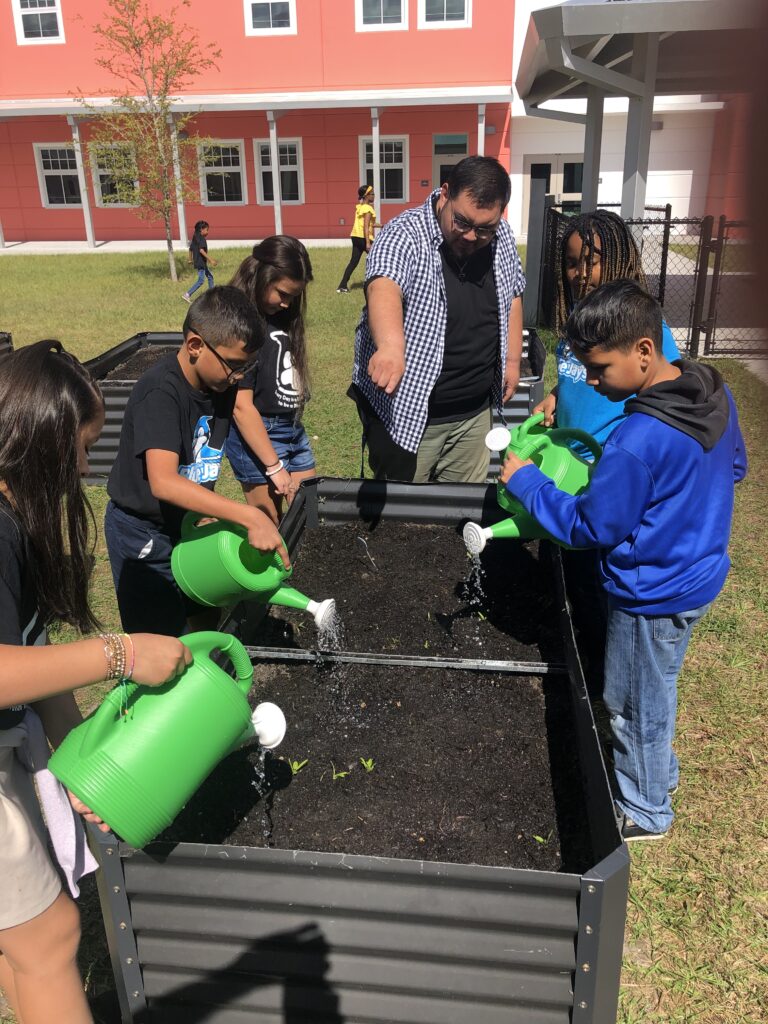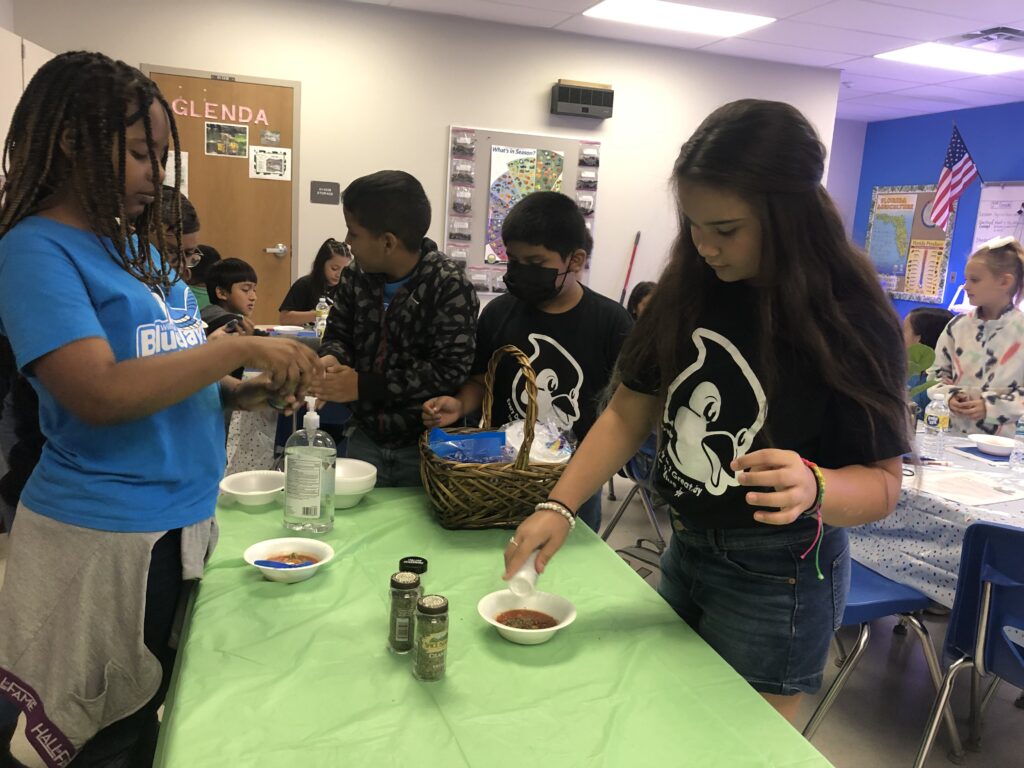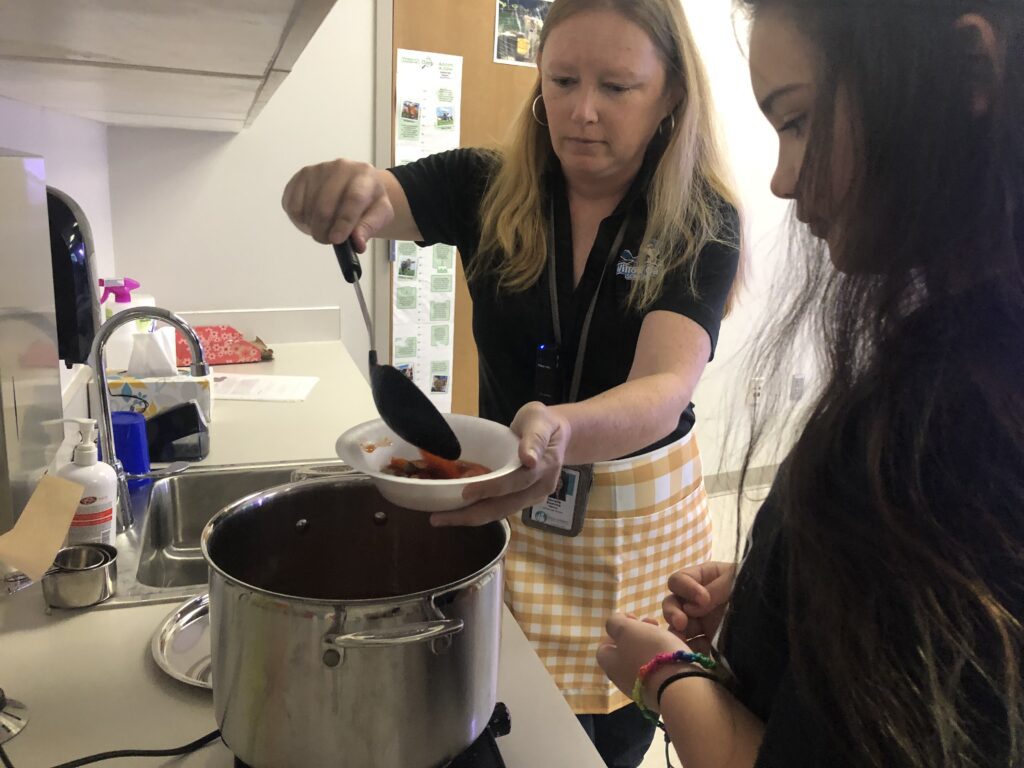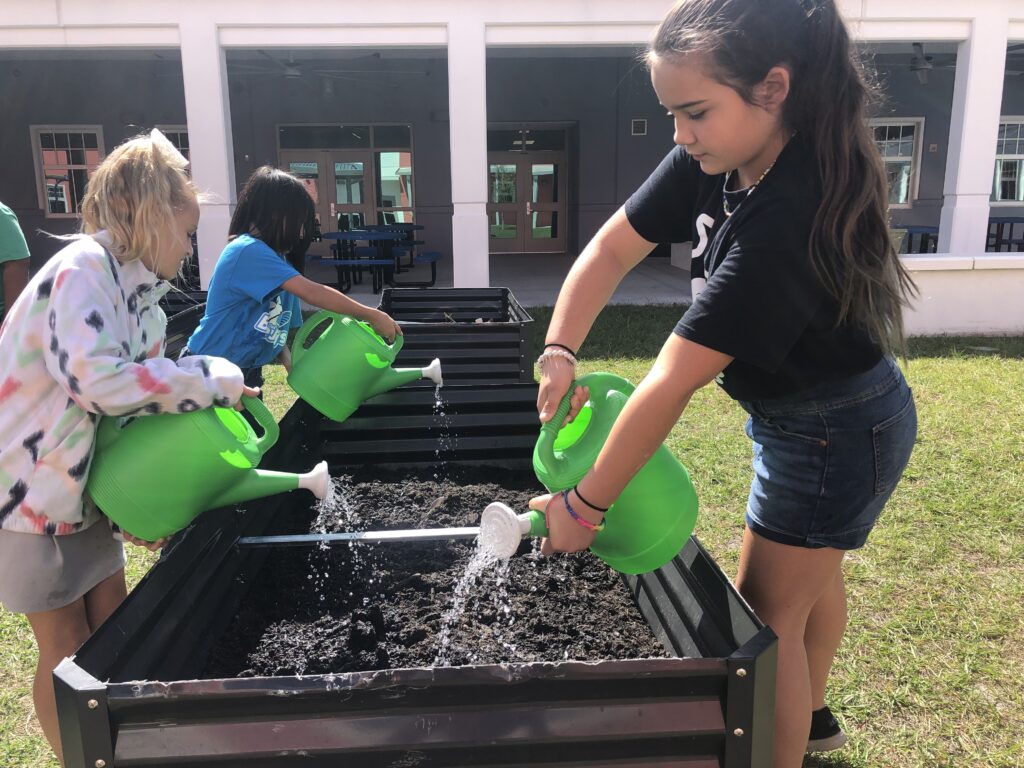Elementary Agriculture Science Program Off to a Strong Start at Willow Oak
story and photos by PAUL CATALA
The children in Danielle Emmons’ fourth-grade class walk to their seats at the tables. A few minutes after sitting down, they begin to line up for the delicious mouths-on lesson of the day: homemade vegetable soup.
“Welcome to the Blue Jay Café, where we’ve been learning how to classify vegetables. Who can remember the five parts of a plant that are edible?” she asks the “restaurant’s” pupil patrons.
It’s not a typical question a patron would be asked when dining at a typical restaurant, but the children eating soup in Willow Oak School’s “Blue Jay Café” aren’t there just to eat — they’re there to learn.
Willow Oak School is the first pre-kindergarten to fifth-grade public elementary school in the Polk County School District to participate in the district’s new Elementary Agricultural Science Program (EASP). Willow Oak, with about more than 900 pupils, opened in August 2021, built on what was once a strawberry field.
Willow Oak is the pilot site for the EASP, says Emmons, as she watches her students serve themselves soup. At the school, she works with children in second to fifth grades and is in her 13th year teaching in Polk County. That follows a year of instruction at Kingsford Elementary in Mulberry and 10 years at Kathleen Elementary in Lakeland. She was the school district’s regional science coach in 2015.
Emmons says although the 2022-23 school year is young, her students are already learning and accomplishing a lot in their agricultural book and hands-on studies. Around her classroom are posters and flyers highlighting various agricultural and farming facts.
Emmons says her second-graders are learning the basics of agriculture through lessons like “Agriculture Pays,” which explores careers in agriculture; “A Day Without Agriculture,” which delves into consumer wants and needs; and “Right This Very Minute,” which explains how food gets from farms and fields to the dinner table.
For the third-graders, Emmons says the focus is more on learning about farm animals. Her classes participated in an Adopt-a-Cow program, which assigned a calf to Willow Oak, and students were able to follow the growth virtually and Zoom via live video in real time with the farmer raising the calf. The lessons cover milk safety, dairy in the community, and dairy in the environment.
Lessons for fourth-grade students are geared more toward plants and plant cultivation. She says her classes discuss structures and functions of plants; how to classify vegetables through roots, stems, leaves, flowers, and fruit; and how to dissect and learn about seeds
Her fifth-graders study aspects of hydroponics, such as what plants need to survive and whether they can grow with or without soil.
“Since the program started here, I really enjoy it,” Emmons says.
“We were lucky enough to get the program here for the county,” says Emmons. “It’s very applicable to kids here because — for many of them — it’s their families’ livelihoods, so it’s applicable inside and outside of school.”
There are several ways Willow Oak makes the EASP applicable to real life. At the school, all third- through fifth-grade classes have filled outdoor garden beds with soil and plants that they are responsible for maintaining throughout the school year. She says by December, the plan is to fix a big salad once everything is harvested, including spinach, onions, tomatoes, and green peppers. Tomatoes and lettuce will be harvested from the hydroponic gardens.
The EASP made it to Willow Oak after meetings last summer with Emmons, Principal Michelle Townley, and Polk County school administrators, including Elementary Regional School Superintendent Benjamin Henry; Deputy Superintendent Wayne Green; Senior Director of K-12 Mathematics Joe McNaughton; Senior Director of Technology, Adult, and Multiple Pathways Education Steven Cochran, and Agriculture Curriculum Specialist Jessica Anderson.
Since then, Emmons and Townley say the EASP has been a fun, successful way to help bring crops into the classroom. Townley, a fifth-generation Floridian who grew up in Mulberry on a small farm with cattle, citrus, and gardens, says Willow Oak was perfect for the EASP pilot site.
“I think because of the (agriculture) industry in the area and the availability of space for the gardens and small animals, we were a good fit,” she says.
Those attributes did indeed factor into Willow Oak’s EASP participation, which should soon begin to include other schools in the county, Anderson says. She adds that she hopes the Florida Department of Education will continue to expand agricultural offerings statewide in the future.
“We are thrilled to bring this opportunity to our elementary students. We hope by offering agricultural education at an earlier age we can produce informed consumers who are more aware of how agriculture affects their everyday lives,” Anderson says.
Inside Emmons’ classroom and outside her windows, students are eating and taking time to learn about the origins of what’s going into their stomachs. One of them, 10-year-old Kayti Robbins of Mulberry, says she’s been especially interested in learning the different ways in which plants can grow and how they survive different environments.
“With ag, it’s also really cool learning how they would do it back in the old days and how they do it now. It’s changed a lot,” says Kayti, who says her father grew up on a farm. “It’s important you should know also how to grow your own food instead of always having to rely on others.”
Emmons says the lessons will continue to expand. She says future EASP plans include building a chicken coop, getting students to sell the eggs, and having a small greenhouse constructed.
“The kids love to come to the program classes and if they’re happy and learning, then it’s a success,” she says.




